The Day of the Triffids and Bristol Ideas Melanie Kelly
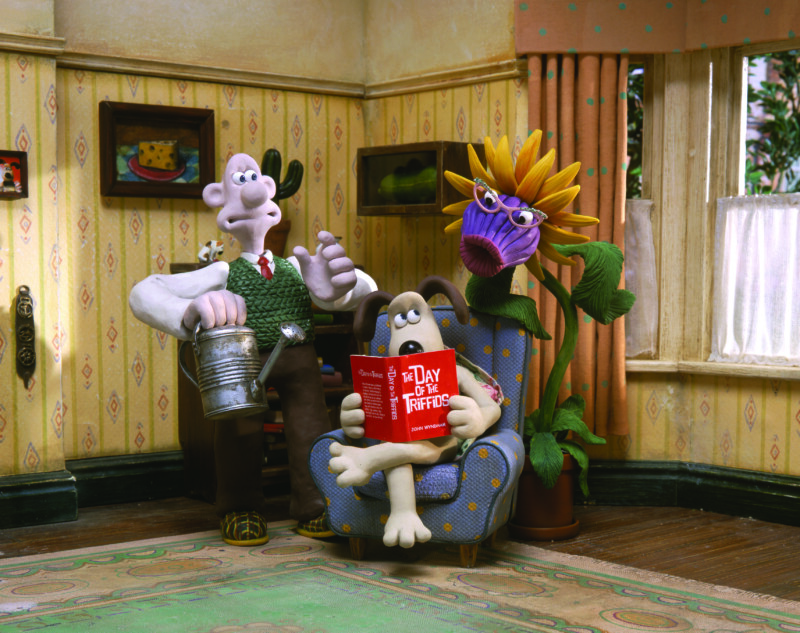
Share this
This special image made by Aardman Animations was used extensively on all publications and marketing material. (© & TM Aardman/Wallace & Gromit Ltd. All Rights Reserved.)
Melanie Kelly worked for Bristol Ideas for 20 years. She ran many projects, one of which was the annual Great Reading Adventure. She writes here about her favourite book from that project, The Day of the Triffids by John Wyndham, and shows not only what the project delivered but also the many partnerships involved, the extensive media coverage achieved, and what this meant to her.
On 8 January 2004, something sinister was stirring at the Wildwalk botanical house in the heart of Bristol. Following reported sightings of a seven-foot tall homicidal plant, scientist and broadcaster Adam Hart-Davis, award-winning author Helen Dunmore, Councillor Bill Martin, Bristol’s Lord Mayor and pupils from Severn Vale School wound their way through the steamy interior to investigate. There, beneath the tropical canopy, they encountered a towering triffid puppet and stacks of John Wyndham’s 1951 science fiction classic The Day of the Triffids. And so began Bristol’s second Great Reading Adventure, an annual community focussed cultural initiative that aimed to bring people together and raise standards of literacy by encouraging everyone in the city to read the same book at the same time.
I was employed by Bristol Ideas for 20 years. During that time, it was the various reading adventures that we ran between 2002 and 2009 that were the most enjoyable and rewarding projects on which to work. Of these, The Day of the Triffids stands out as my absolute favourite. I already loved the book and took great pleasure in gathering the images and text that I turned into a range of support materials to enhance the reading and learning experience.
Wyndham’s book was chosen because, as well as being an enthralling story, it could be used to promote Bristol as a place for innovation, creativity and green initiatives. Bristol Ideas was always keen to make meaningful connections across the arts and sciences and make them accessible to the widest possible public.
Among the materials distributed free of charge were: 4,100 copies of the Penguin Classic edition of The Day of the Triffids; 1,000 simplified versions of the book (Evans Fast Track Classics series); and 500 picture books on an environmental theme, Michael Foreman’s Dinosaurs and All That Rubbish. Schools and colleges were asked to pre-register for classroom reading sets and educational packs and 73 of these were distributed.
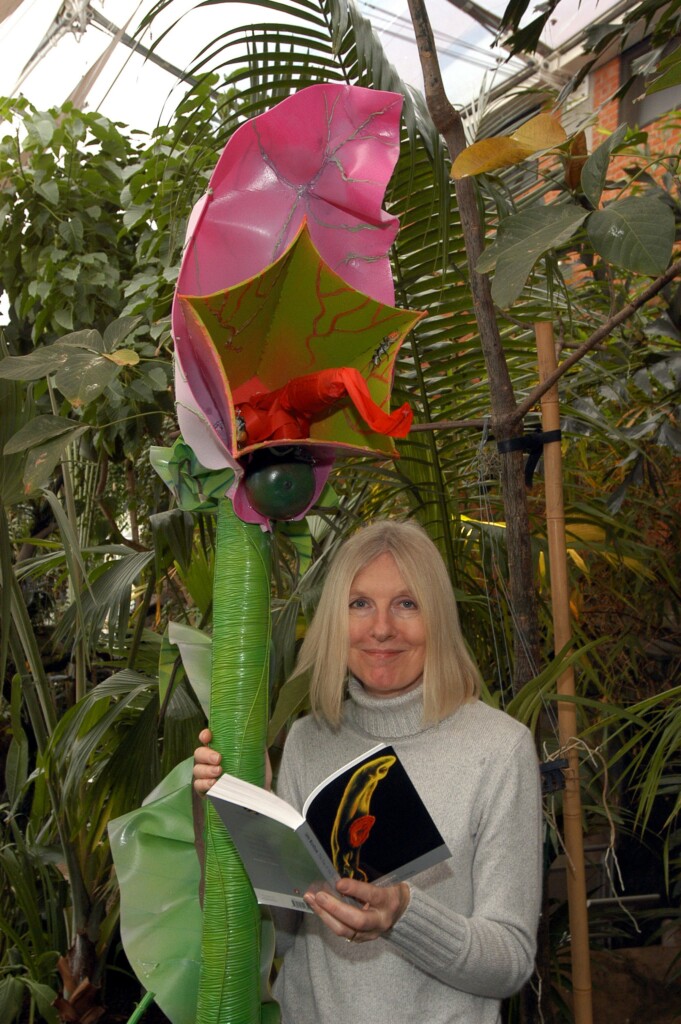
As part of its 150th birthday celebrations, JW Arrowsmith Ltd printed 10,000 readers’ guides free of charge, along with feedback questionnaires and some of the publicity posters, which featured a special Wallace and Gromit image by Bristol’s Aardman Animations. Arts & Business – an organisation dedicated to increasing business involvement in the arts – provided matched funding for Arrowsmith’s support through its New Partners Scheme. The guides and promotional material were designed by Qube Design Associates Ltd. The guide was the most beautiful and satisfying publication with which I have been associated. Qube also designed the project website, which had more than 10,000 visits in the first three months.
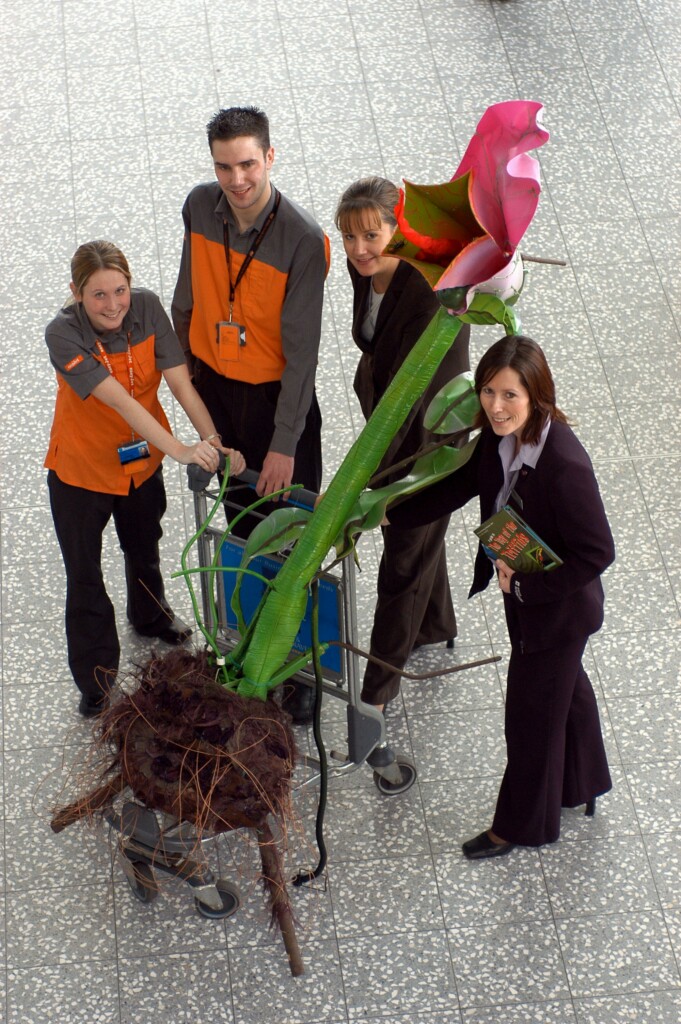
A specially commissioned 12-part comic serial based on the book was published in Bristol’s Evening Post, with an estimated readership of around 216,000 people a day. It was devised by local artist Simon Gurr. Creative workshops inspired by themes raised by the project took place in schools and libraries. There was also a science fiction weekend with screenings of classic films and television programmes, and lectures and discussions on Wyndham’s work. City Inn provided free accommodation for the speakers, who included the authors Brian Aldiss and Christopher Priest.
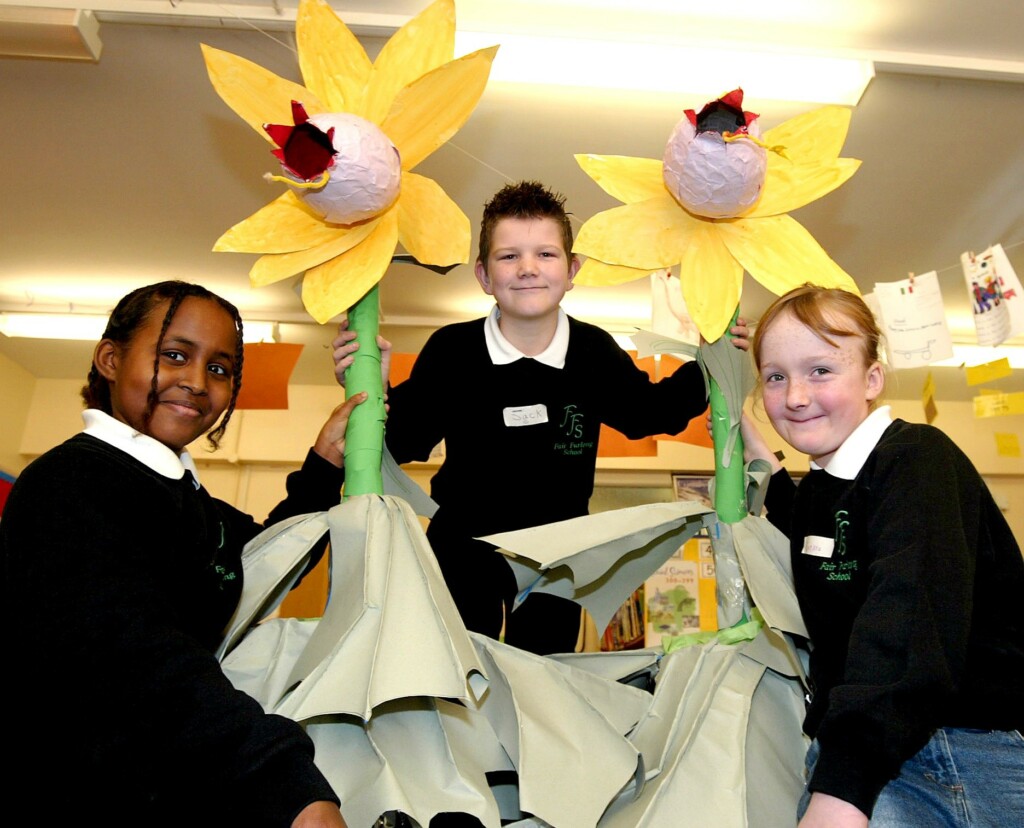
Grayling PR managed the media campaign as support in kind. The project was the topic of 14 national media stories, including on BBC Breakfast News, You and Yours and Radio Five Live, widespread trade and professional media coverage, more than 25 picture stories in the Bristol Evening Post, local radio and television items, and features on The Guardian and BBC websites.
The triffid puppet commissioned from local artists Gynormous Rawkus made a tour of the Galleries shopping centre, Bristol International Airport, Henbury library and the local BBC TV newsroom on launch day. It was borrowed by schools and libraries during the project and featured in a Valentine’s Day promotion organised by Bristol Tourism and Conference Bureau.
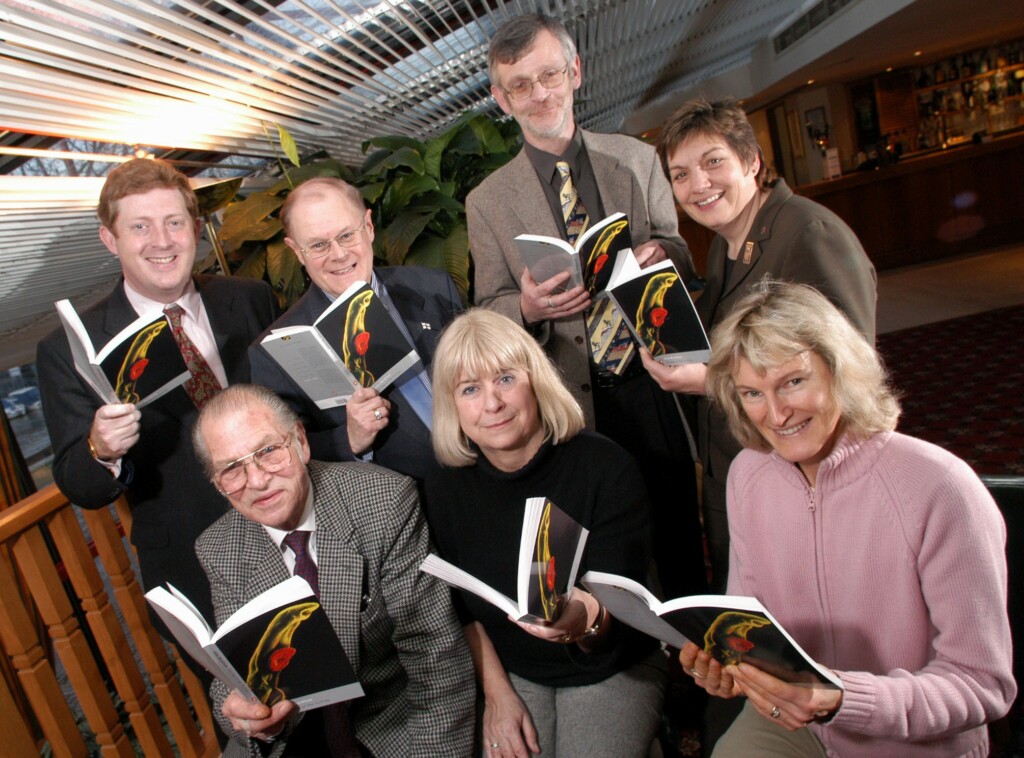
Other activities included workshops and events at At-Bristol and Arnolfini; a local scout troop using the book as part of obtaining Book Reader and Librarian badges; and reading group discussions in libraries and other locations. In addition to all the free copies available, the book was borrowed 1,000 times from branches of the library service, several of which had set up wonderfully imaginative displays as part of the project.
Among the many examples of positive feedback received was an email from the librarian at HMP Bristol, who wrote to say that ‘having had the intention of setting up a book group in the prison for some time, the gift of multiple copies of The Day of the Triffids gave us just the impetus we needed to get started’
Another came from the Bristol Gateway Special School, which said:
We have been really impressed with the response of the students to the story. Normally they are very reluctant to read (or even listen to) pieces of extended prose but they have all listened to, read and discussed the story with great enthusiasm. It has been a real pleasure working on the story and they have arrived at lessons desperate to carry on reading. For our students, this is a major achievement. They particularly like the idea that the book is being studied across Bristol and they are part of a big project.
wFrom the completed reader questionnaires, we learnt that nearly 99 per cent of those who expressed an opinion thought that citywide reading projects were an excellent or good idea, and more than 98 per cent would consider participating in future events.
All of this was achieved at a time when Bristol Ideas had only two members of staff and this demonstrates how effective our methods of gathering, enthusing and supporting partners to work on a collaborative project could be.
In 2009, Arthur Conan Doyle’s The Lost World – which included partners from Edinburgh to Cornwall – was the last standalone Great Reading Adventure. After that, although we used the Great Reading Adventure name whenever we distributed free books as part of other projects, this was not on the same scope as before. Having begun with the commitment that the books should be provided to all free of charge, the full-scale Great Reading Adventure became a prohibitively expensive enterprise in a time of dwindling funding. It would have been against the spirit of the project to have expected individual readers to pay to take part.
The Great Reading Adventure showed the magic of reading and of sharing that experience with others. It highlighted the importance of libraries to many parts of the city. And it was fun to do. In many ways, it was the Bristol Ideas project that reached the largest and widest range of people.
By the time I retired in early 2021, I had become rather jaded and dispirited about my working life. However, whenever I come across a copy of The Day of the Triffids readers’ guide on our bookshelves, it still gives me a sense of pride and brings back many happy memories.
Melanie Kelly was project manager and researcher for Bristol Ideas 2002- 2022. She led the annual Great Reading Adventure and key elements of Brunel200, BAC100 and Film2021 among many other initiatives. She also wrote and edited many Bristol Ideas books.
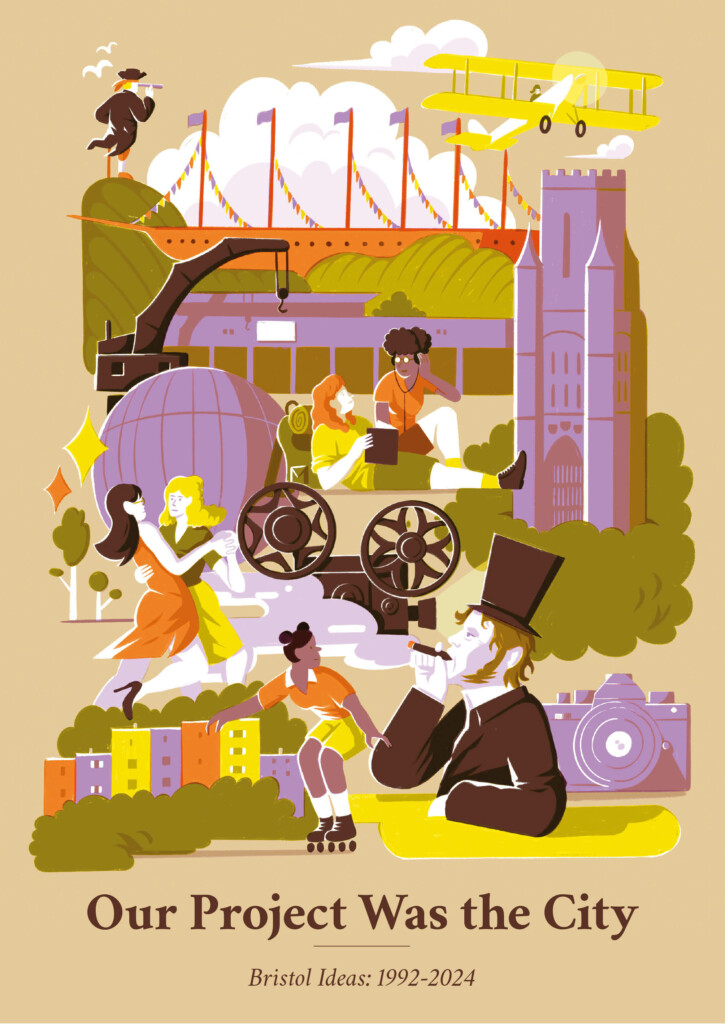
This essay is taken from Our Project Was the City: Bristol Ideas 1992-2024, published May 2024.